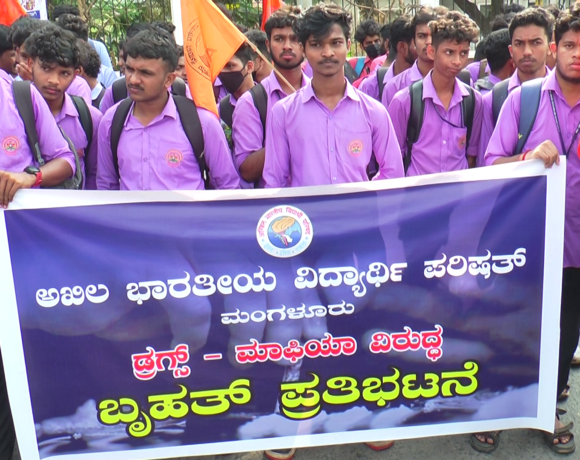EDUCATION TOMORROW!!!

Post-pandemic period gives us an opportunity to re-imagine what schools and schooling are for and advocate for a re-schooled society in which our investment in schools builds and develops society. Today’s learners are digital natives. They are accustomed to getting information and meeting their needs with a click of a button in a user-friendly, personal and customizable way. Students want their learning experience to meet their interests, time constraints and academic needs.
Learners are even more technologically savvy, demanding, confident and focused. Contrary to the old-school traditions housed in English, math, social studies and science, we’ll need to redesign curricula and courses to reflect the skills mandated by emerging economies and technologies. Skills such as coding, design, sustainability and financial literacy will have to be integrated and taught in the classroom.
Schools will have to offer more ways for students to gain real-world experience that is applicable to their future careers. Schools should provide opportunities for students and include internship programs in companies. Rather than limiting students inside a classroom, schools can create more opportunities for students to gain useful technical skills through real-world application.
The world has already witnessed that the concept of 9-5 jobs in the office is also decreasing as people get an enormous scope for earning by sitting at their home and working online. As the world has witnessed a lot of technological changes, many things have changed since then. The email has replaced letters and WhatsApp and Facebook have almost substituted human interaction.
Blended learning, flipped classrooms and BYOD (Bring Your Own Device) for learning. Personalised learning at one’s own pace and speed. And the teacher would now be the mentor, clarifier and the problem solving specialist. Examination patterns will change completely with increased use of online quizzes, group projects, and group discussions. It’s not very far when we will see students from all over the world attending the same classes, and interacting with each other. No one will have to miss out on an education, and students are much more likely to enjoy learning as a result.
At the rate at which technology is progressing Students entering school today will find themselves two decades from now in occupations that do not exist today. We had never imagined about flipkart, Amazon, Uber, swiggy, even google or Facebook two decades back. Coding today is catching fire ! Anyone nowadays can learn to code and in future create his/her own website or even his/her own business. Educational institutions must not only focus on their day to day operations but also shape their vision on how they will better use technology for enhancing the learning process. Today’s students have an entirely different world view to previous generations, having grown up in a world full of choice and limitless options. They have high expectations, demanding fast, easy access to content wherever they are.
The new free tool ChatGPT looks very harmless to us now, but very soon it is going to reshape our society as well as our economy drastically!! ChatGPT can create movie outlines, write entire codes and solve coding problems, write entire books, songs, poems, scripts within minutes thereby hampering the creativity of an individual. An ideal example is our smartphones that each one of us carries. Earlier when we used the landlines or the not so smart mobile phones we could remember atleast a few important fone numbers as per our priorities. But now with everything digitally available on our fingertips we don’t even remember the phone numbers of our loved ones either. The unrestricted use and development of Artificial Intelligence pose a significant risk to the existence of humanity.
Gamification has added a more creative, dynamic and innovative element to learning. These activities have the potential to turn an otherwise routine teaching learning process into an imaginative activity that will motivate students to work harder and provide teachers with valuable insight into student performance. Video-sharing websites, such as YouTube, also offer an array of educational videos which students are relying on for doubt solving and learning.
Students of today need deeper cognitive skills in priority areas such as creativity and problem solving, social-emotional skills such as relationship building, self-awareness, and self-recognition since they not only support academic learning
but also promote well-being. To meet these needs, technology can play an increasingly critical, role in how students learn
and how educators support them.
In country like India with such huge population even if teachers and schools believe in the power of personalized learning and are motivated to individualize instruction, it is not always clear how to do so for hundreds or thousands of students. One-on-one mentoring is a highly effective way to personalize learning, for instance, but it is not a feasible for working with large student populations when the focus is more on time bound syllabus completion and assessments. Instead schools can rely on systems that are technology-enabled and student- driven, which is a very powerful way to provide personalized learning at large scale.
We did not blink an eyelid when we moved into the cashless society or paperless money interns of debit and credit cards. Similarly In the near future say around 10 years from now robots will be introduced into the classrooms. These robots will not only teach fixed contents, but will also be equipped with a response function that answers various questions made by students.
More emphasis should be given to physical education and mental health of the students in the coming years. The amount of junk food consumption and digital exposure will lead to obesity amongst the Youth. In today’s world, many of us rely on social media platforms such as Facebook, Twitter, Snapchat, YouTube, and Instagram to find and connect with each other. We fail to understand that we human beings are social creatures. We need the companionship of others to thrive in life, and the strength of our connections has a huge impact on our mental health and happiness. Being socially connected to others can ease stress, anxiety, and depression, boost self-worth, provide comfort and joy, prevent loneliness, which social media cannot compensate. Hence mental health of kids are a matter of great concern in the near future.
In today’s times we don’t use technology, we love technology. If future generations are to remember us more with gratitude than sorrow, we must achieve more than just the miracles of technology. We must also leave them a glimpse of the world as it was created, not just as it looked when we got through with it. It has become appallingly obvious that our technology has exceeded our humanity.
No matter how advanced technologies are, teachers are still the best educators !!!

Dr. Ushavati Shetty
B.Sc(Botany), M.Sc( Cytogenetic & Plant Breeding), PhD ( Aerobiology), BEd, TEIS( Teachers Education in International Studies), Psychology, DSM( Diploma in School Leadership & Management)





















